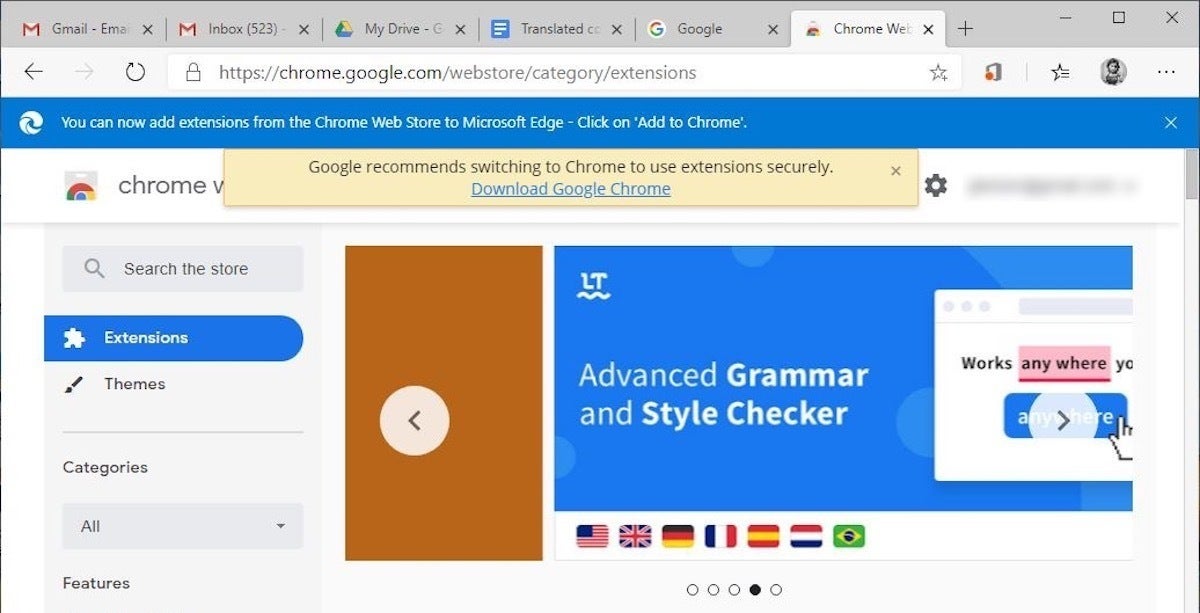Google plugs for Chrome when Edge gets to look through the association's administrations.
Google plugs for Chrome when Edge gets to look through the association's administrations.
Google has posted admonitions and alarms focusing on Microsoft Edge on a few of its administrations' sites, including the Chrome Web Store add-on showcase, Google Drive, Gmail, and the organization's default search page, google.com.It's normal for Google to signal adversary programs with messages that prescribe a client download Chrome to get to the hunt organization's administrations. Previously, while it was building its now-predominant situation in the program space, Google focused on Mozilla's Firefox and Microsoft's Internet Explorer (IE) with such pop-ups. Now and again, rival program producers have likewise countered Google with comparable you-should change from-Chrome strategies.
Every single such exertion depends on recognizing the program client specialist, a string implanted in the HTML header that distinguishes the program, its particular adaptation and the working framework under which the program runs. (Some investigation organizations, for example, the California-based Net Applications, use program client operators to divine which programs or working frameworks are generally used to go on the web.)
In the most recent crusade, Google denoted the Chrome Web Store - the official outlet for all Chrome program additional items - with a "Google prescribes changing to Chrome to utilize augmentations safely" message when the website was gotten to by Edge. (The Chromium-based Edge can introduce and utilize any of the additional items, likewise called "augmentations" by Google, facilitated by the Web Store.)
It's hazy what Google implies by the message, or how Chrome's utilization of additional items is any more secure than Edge.
At other Google administrations' destinations, including Google Drive, Google Docs, Gmail and the google.com search page, clients of Edge see an alternate message. At Google Docs, for instance, the spring up peruses, "To utilize Docs disconnected, move up to Chrome." Meanwhile, the google.com site shows a message that peruses, "Change to Chrome for Windows."
(Even though Edge on Windows 10 experienced all the above Google-imagined pop-ups, Edge on macOS just got the message on the Chrome Web Store webpage.)
Google was unequivocally focusing on Edge with these messages. Two different programs, Opera and Brave, additionally worked from a similar Chromium codebase as Edge - or Chrome, so far as that is concerned - didn't show any suggestions or different messages when they were directed to similar destinations: the Chrome Web Store, Google Drive, Google Docs, Gmail and google.com. (Like Edge, both Opera and Brave can introduce and utilize the additional items in the Chrome Web Store.)
That Google trained in on Edge bodes well: In January, Edge represented 7% of all program activities for the month, while Opera was pegged at simply 1.4%. (Daring didn't enroll on Net Applications' count.) Of the Chrome equals that additionally depend on Chromium, Edge is effectively the greatest danger - and at that, truly not too huge - to Google's control of the program showcase.



No comments